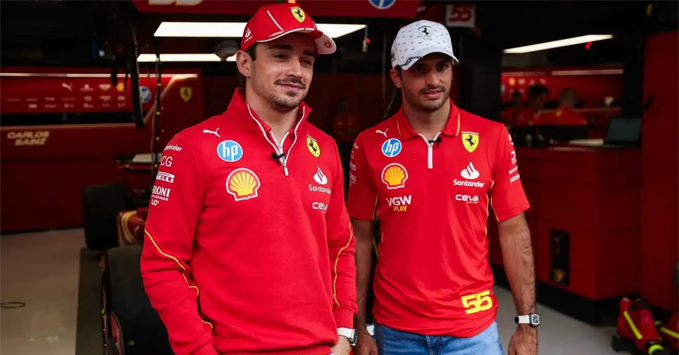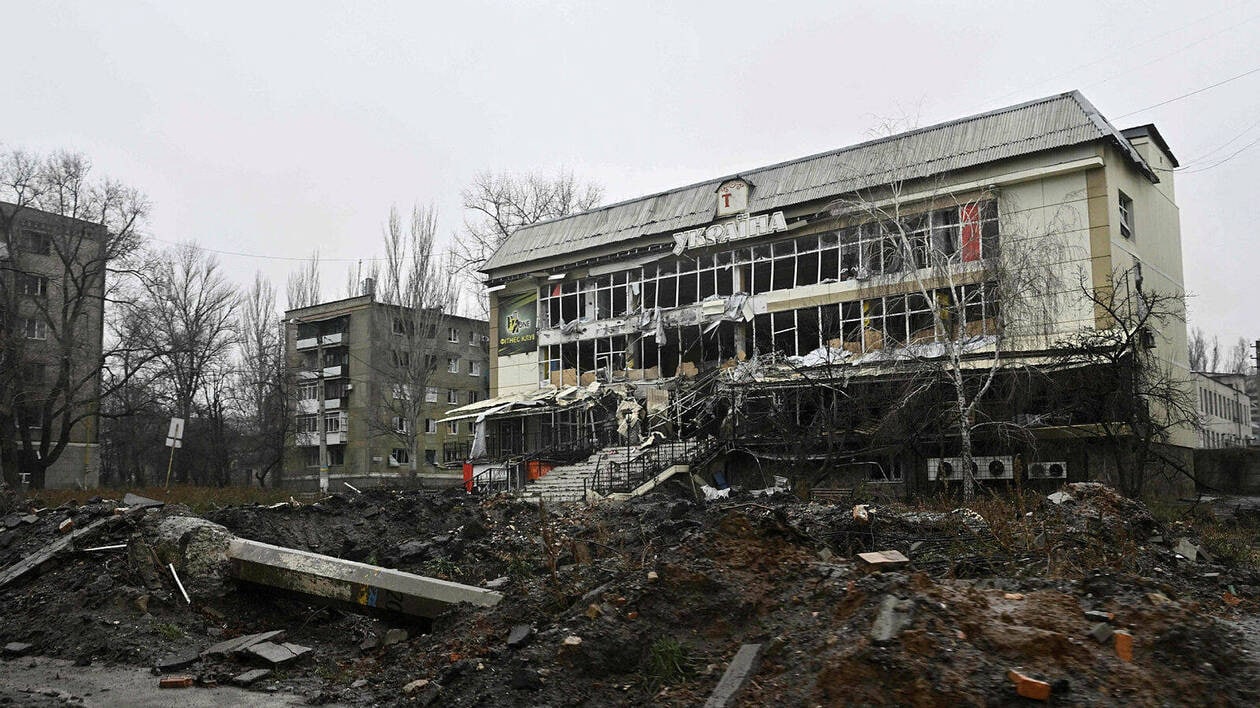Ferrari's Team Orders: Impact On Leclerc And Hamilton's Relationship

Table of Contents
The History of Ferrari Team Orders and Their Controversies
Ferrari's history is intertwined with controversial instances of team orders, shaping its reputation and influencing driver dynamics. These decisions, while sometimes strategically sound, have often sparked outrage amongst fans and raised ethical questions within the sport. The legacy of these orders casts a long shadow over the team's present-day strategies.
- The infamous 2010 Turkish Grand Prix and the fallout: Fernando Alonso's deliberate slowing down to allow teammate Felipe Massa to gain a position perfectly exemplifies the controversy surrounding Ferrari's team orders. This incident ignited a firestorm of debate about sporting ethics and fair play, leaving a lasting mark on the team's image.
- Other instances where team orders benefited one driver over another, potentially impacting championship standings: Several other races throughout Ferrari's history show similar patterns. These decisions, while perhaps beneficial in the short term for the team, often came at the expense of a driver's individual championship ambitions, sowing seeds of distrust and resentment.
- The impact of these past decisions on the public perception of Ferrari's fairness: The cumulative effect of these controversial team orders has led to a perception, rightly or wrongly, that Ferrari prioritizes team results over individual driver performance, often at the cost of fairness and transparency. This perception continues to shape how fans and critics view the Scuderia's strategic decisions.
The ethical and sporting implications of prioritizing one driver over another are significant. Such decisions can undermine the spirit of competition, impacting not only the drivers involved but also the overall integrity of the sport. Furthermore, these choices often negatively impact team morale, creating a divisive environment and potentially hindering overall team performance. The pressure cooker environment of F1 intensifies these effects.
Leclerc's Experience with Ferrari Team Orders
Charles Leclerc's time at Ferrari has been marked by several instances where team orders directly influenced his race results and championship aspirations. While the team has publicly defended these strategies as necessary for overall team goals, the impact on Leclerc remains a point of discussion.
- Specific examples of team orders in recent seasons that favored a teammate: Several races have featured situations where Leclerc was asked to yield position to his teammate, Sebastian Vettel or Carlos Sainz, impacting his potential for points or victory.
- The effect of these orders on Leclerc's performance and his public statements: While maintaining professionalism, Leclerc's reactions to these orders have been discernible, revealing a degree of frustration and perhaps even disillusionment. His public comments, though often carefully worded, hinted at the challenges of accepting these team directives.
- How Leclerc's experience with Ferrari team orders might compare to other drivers' experiences in the team: Comparing Leclerc's experience to those of other drivers at Ferrari across different eras highlights a consistent pattern: the team's willingness to implement team orders, regardless of the impact on individual driver ambitions.
The impact on Leclerc’s relationship with the team is complex. While his talent is undeniable, the repeated instances of team orders could potentially affect his long-term commitment and satisfaction with the team. The consequences for his confidence and motivation are equally important to consider.
Hamilton's Perspective and the Contrast with Ferrari's Approach
Comparing Mercedes' approach to team orders with Ferrari's reveals a stark contrast in strategic philosophies and communication styles. Mercedes, while occasionally employing team orders, has generally adopted a more transparent and less overtly directive approach.
- Examples of how Mercedes handled similar situations in the past: Mercedes has often prioritized a more collaborative approach, focusing on maximizing the team's overall points rather than overtly favoring one driver over another.
- The difference in the culture and approach between the two teams: This difference reflects a fundamental distinction in the organizational culture and strategic priorities of the two teams. Mercedes' approach seems more focused on fostering a harmonious and collaborative environment among its drivers, while Ferrari's history suggests a more hierarchical and result-oriented structure.
- How these contrasting strategies affect driver morale and performance: The differing approaches impact driver morale and performance significantly. A more transparent and less overtly manipulative approach fosters a more collaborative atmosphere.
Hamilton's experience with Mercedes' relatively less interventionist approach to team orders shapes his perspective. It's plausible to speculate that he might react differently to similar situations within the potentially more directive environment of Ferrari, although this is purely conjecture.
The Impact on the Leclerc-Hamilton Dynamic (if any)
Whether Ferrari’s use of team orders has directly influenced the dynamic between Leclerc and Hamilton is difficult to ascertain definitively. However, it is reasonable to speculate about indirect influences.
- Analyze potential impacts on their mutual respect or rivalry: The contrasting experiences with team orders could potentially impact their mutual respect, although direct evidence is lacking. Hamilton's experience with a more transparent team might influence his perception of Ferrari's strategies.
- Consider if the differing team strategies influence their relationship: The contrasting team cultures surrounding team orders might indirectly influence their perspectives on each other's performance and conduct on the track.
- Explore if past controversies surrounding team orders have influenced their views of each other: It's possible that Hamilton, witnessing Ferrari's past controversies, might hold a different view of Leclerc's situation within the team than Leclerc himself.
Determining a direct correlation between Ferrari’s team order approach and the Leclerc-Hamilton dynamic requires more evidence. However, considering the indirect influences is crucial in understanding the nuances of their relationship within the complex world of Formula 1.
Conclusion
The impact of Ferrari team orders on both Leclerc and Hamilton's careers, while not directly comparable, reveals significant differences in team approaches and their consequences. Ferrari's history of controversial team orders has created a perception of strategic maneuvering potentially at odds with the spirit of fair competition. While these decisions might be strategically sound in some instances, they raise ethical questions and have had clear consequences for driver morale and public perception of the team. The long-term implications for Ferrari, Leclerc, and the sport itself are far-reaching and warrant further examination.
What are your thoughts on the impact of Ferrari team orders on driver relationships? Share your opinions and perspectives in the comments below. Let's discuss the complexities of Ferrari team orders and their ongoing effects on Formula 1.

Featured Posts
-
 Report Lufthansa Flight Flies Pilotless After Co Pilots Medical Emergency
May 20, 2025
Report Lufthansa Flight Flies Pilotless After Co Pilots Medical Emergency
May 20, 2025 -
 Zachary Cunha A New Chapter In Private Practice After Us Attorney Role
May 20, 2025
Zachary Cunha A New Chapter In Private Practice After Us Attorney Role
May 20, 2025 -
 Tomahawk Missile Drone Truck A Potential Game Changer For The Us Military
May 20, 2025
Tomahawk Missile Drone Truck A Potential Game Changer For The Us Military
May 20, 2025 -
 Nouveaux Chefs Et Nouvelles Adresses A Biarritz Le Point Sur La Scene Gastronomique
May 20, 2025
Nouveaux Chefs Et Nouvelles Adresses A Biarritz Le Point Sur La Scene Gastronomique
May 20, 2025 -
 Todays Nyt Mini Crossword March 27 Answers Revealed
May 20, 2025
Todays Nyt Mini Crossword March 27 Answers Revealed
May 20, 2025
